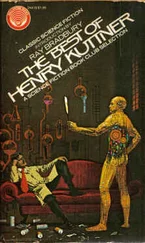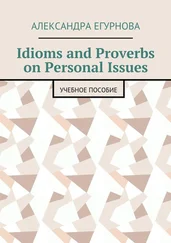Henry Bohn - A Polyglot of Foreign Proverbs
Здесь есть возможность читать онлайн «Henry Bohn - A Polyglot of Foreign Proverbs» — ознакомительный отрывок электронной книги совершенно бесплатно, а после прочтения отрывка купить полную версию. В некоторых случаях можно слушать аудио, скачать через торрент в формате fb2 и присутствует краткое содержание. Жанр: foreign_antique, foreign_prose, на английском языке. Описание произведения, (предисловие) а так же отзывы посетителей доступны на портале библиотеки ЛибКат.
- Название:A Polyglot of Foreign Proverbs
- Автор:
- Жанр:
- Год:неизвестен
- ISBN:нет данных
- Рейтинг книги:3 / 5. Голосов: 1
-
Избранное:Добавить в избранное
- Отзывы:
-
Ваша оценка:
- 60
- 1
- 2
- 3
- 4
- 5
A Polyglot of Foreign Proverbs: краткое содержание, описание и аннотация
Предлагаем к чтению аннотацию, описание, краткое содержание или предисловие (зависит от того, что написал сам автор книги «A Polyglot of Foreign Proverbs»). Если вы не нашли необходимую информацию о книге — напишите в комментариях, мы постараемся отыскать её.
A Polyglot of Foreign Proverbs — читать онлайн ознакомительный отрывок
Ниже представлен текст книги, разбитый по страницам. Система сохранения места последней прочитанной страницы, позволяет с удобством читать онлайн бесплатно книгу «A Polyglot of Foreign Proverbs», без необходимости каждый раз заново искать на чём Вы остановились. Поставьте закладку, и сможете в любой момент перейти на страницу, на которой закончили чтение.
Интервал:
Закладка:
La pomme est pour le vieux singe. The old monkey gets the apple.
La poule ne doit pas chanter devant le coq. The hen ought not to cackle in presence of the cock.
L’appétit vient en mangeant. Appetite comes with eating.
La queue est la pire à écorcher. The tail is the hardest to scourge.
La raison du plus fort est toujours la meilleure. The arguments of the strongest have always the most weight.
L’arbre ne tombe pas du premier coup. The tree does not fall at the first stroke.
L’argent est un bon serviteur, mais c’est un mauvais maître. Money is a good servant but a bad master.
L’argent ne se perd qu’à faute d’argent. Money is lost only for want of money.
La rouille use plus que le travail. Rust wastes more than use.
La seule victoire contre l’amour c’est la fuite. The only victory over love is flight.
La vanité n’a pas de plus grand ennemi que la vanité. Vanity has no greater foe than vanity.
L’avare et le cochon ne sont bons qu’après leur mort. The miser and the pig are of no use till dead.
L’avarice rompt le sac. Avarice bursts the bag.
La vérité est la massue qui chacun assomme et tue. Truth is the club that knocks down and kills everybody.
Lavez chien, peignez chien, toutefois n’est chien que chien. Wash a dog, comb a dog, still a dog remains a dog.
La vie est moitié usée avant qu’on ne sache ce qu’est la vie. Life is half spent before one knows what life is.
Le beau soulier blesse souvent le pied. A handsome shoe often pinches the foot.
Le bedeau de la paroisse est toujours de l’avis de monsieur le curé. The beadle of the parish is always of the vicar’s opinion.
Le b”oe]uf par la corne et l’homme par la parole. Take an ox by his horn, a man by his word.
Le bossu ne voit pas sa bosse, mais il voit celle de son confrère. The hunchback does not see his own hump, but he sees his brother’s.
Le bouton devient rose et la rose gratte-cul. The bud becomes a rose and the rose a hip.
Le bruit est si fort qu’on n’entend pas Dieu tonner. The noise is so great one cannot hear God thunder.
Le bruit pend l’homme. Repute hangs a man.
Le chaudron mâchure la poële. The kettle smuts the frying-pan.
Le c”oe]ur mène où il va. The heart leads whither it goes.
L’écoutant fait le médisant. The listener makes the backbiter.
Le dernier venu le mieux aimé. The last come is the best liked.
Le diable était beau quand il était jeune. The devil was handsome when he was young.
Le diable n’est pas toujours à la porte d’un pauvre homme. The devil is not always at a poor man’s door.
Le diable pourrait mourir que je n’hériterais pas de ses cornes. The devil may die without my inheriting his horns.
Le faux ami ressemble à l’ombre d’un cadran. The false friend is like the shadow of a sun-dial.
Le feu le plus couvert est le plus ardent. The most covered fire is always the most glowing.
Le fou cherche son malheur. The fool hunts for misfortune.
Le fou se coupe de son couteau. The fool cuts himself with his own knife.
Le jeu ne vaut pas la chandelle. The game is not worth the candle.
Le lièvre revient toujours à son gite. The hare always returns to her form.
Le loup mourra dans sa peau. The wolf will die in his skin.
Le mal an entre en nageant. The ill year comes in swimming.
Le mal de l’”oe]il il faut le panser avec le coude. If you have a sore eye wipe it with your elbow. ( Elbow-grease is a great preventive of disease. )
Le mal vient à cheval et s’en va à pied. Misfortune comes on horseback and goes away on foot.
Le médecin est souvent plus à craindre que la maladie. The doctor is often more to be feared than the disease.
Le meilleur vin a sa lie. The best wine has its lees.
Le miel est doux, mais l’abeille pique. Honey is sweet, but the bee stings.
Le miel n’est pas pour les ânes. Honey is not for asses.
Le moine répond comme l’abbé chante. The monk responds as the abbot chants.
Le mortier sent toujours les aulx. The mortar always smells of the garlic.
Le moulin ne moult pas avec l’eau coulée en bas. The mill does not grind with water that is past.
L’empereur d’Allemagne est le roy des roys, le roy d’Espagne roy des hommes, le roy de France roy des ânes, et le roy d’Angleterre roy des diables. The Emperor of Germany is the king of kings, the King of Spain king of men, the King of France king of asses, the King of England king of devils.
Le mulet garde longuement un coup de pied à son maître. The mule long keeps a kick in reserve for its master.
L’encens entête et tout le monde en veut. Incense intoxicates and every one wishes for it.
L’entente est au diseur. The meaning is best known to the speaker.
Le papier souffre tout. Paper bears anything.
L’épine en naissant va la pointe devant. A thorn comes into the world point foremost.
Le plus riche n’emporte qu’un linceul. The richest man carries nothing away with him but a shroud.
Le plus sage est celui qui ne pense point l’être. He is the wisest man who does not think himself so.
Le premier coup en vaut deux. The first blow is as good as two.
Le premier pas engage au second. The first step binds one to the second.
Le premier venu engrène. The first comer grinds first. ( First come, first served. )
Le repentir coûte bien cher. Repentance costs very dear.
Le riche a plus de parents qu’il ne connaît. The rich man has more relations than he knows.
Les abeilles ne deviennent point frelons. Bees do not become hornets.
Les absents ont toujours tort. The absent are always in the wrong.
Le sac ne fut oncques si plein que n’y entrât bien un grain. A sack was never so full but that it would hold another grain.
Les Allemands ont l’esprit aux doigts. The Germans carry their wit in their fingers.
Les battus payent l’amende. The beaten pay the fine.
Les beaux esprits se rencontrent. Great wits meet.
Les belles ne sont pas pour les beaux. Belles are not for the beaux.
Les belles robes pleurent sur des épaules indignes. Rich garments weep on unworthy shoulders.
Les bons comptes font les bons amis. Short reckonings make long friends.
Les bons marchés ruinent. Good bargains are ruinous.
Les chevaux courent les bénéfices et les ânes les attrapent. Horses run after benefices and asses get them.
Les cloches appellent à l’église mais n’y entrent pas. Bells call to church but do not enter.
Les conseillers ne sont pas les payeurs. Advisers are not the payers.
Les corbeaux ne crèvent pas les yeux aux corbeaux. Ravens do not peck out ravens’ eyes.
Les cordonniers sont toujours les plus mal chaussés. Shoemakers are always the worst shod.
Les derniers venus sont souvent les maîtres. The last comers are often the masters.
Les deux font la paire. The two make a pair.
Les enfants sont ce qu’on les fait. Children are what they are made.
Les envieux mourront, mais non jamais l’envie. The envious will die, but envy never.
Читать дальшеИнтервал:
Закладка:
Похожие книги на «A Polyglot of Foreign Proverbs»
Представляем Вашему вниманию похожие книги на «A Polyglot of Foreign Proverbs» списком для выбора. Мы отобрали схожую по названию и смыслу литературу в надежде предоставить читателям больше вариантов отыскать новые, интересные, ещё непрочитанные произведения.
Обсуждение, отзывы о книге «A Polyglot of Foreign Proverbs» и просто собственные мнения читателей. Оставьте ваши комментарии, напишите, что Вы думаете о произведении, его смысле или главных героях. Укажите что конкретно понравилось, а что нет, и почему Вы так считаете.











